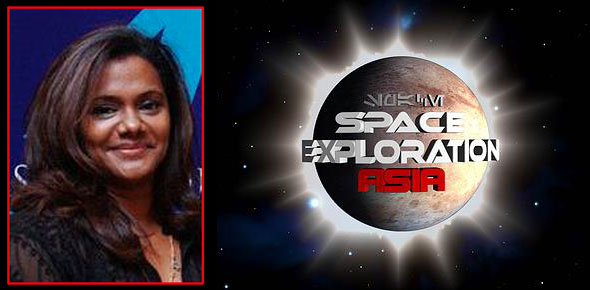“Bring space to life by bringing life to space.” – Howard Bloom
Vision:
Space Exploration Asia exists to catalyze life’s third great leap.
- Life’s first great leap was the jump from the comfort of the sea to the hostile barrens of the land. That move resulted in over fifty million new ways to make a living—over fifty million new species of plants, animals and living things.
- Life’s second great leap came when dinosaurs took to the utter emptiness of the skies and became birds. That leap produced so many new ways to make a living that there are now twice as many species of birds as there are of us land-crawling mammals.
- Life’s third great leap is the eight and a half minute jump beyond the pull of Earth’s gravity, the eight and a half minute climb beyond the skies, the climb to a front stoop that looks out on an entire universe, a cosmos waiting to be turned from desert to greenery. For 3.85 billion years, life has eagerly thrust itself. We have an obligation on behalf of life and its diversity. We are the only species able to take life beyond the atmosphere, beyond the clutch of gravity.
Objective:
Space Exploration Asia’s job is to stimulate and inspire. Our task is to gather the most uplifting and expert dreams of the global space community and to present them to the public. Our goal is to build the kind of infrastructure on which all of humankind’s impossible achievements have been built: the infrastructure of desire and the infrastructure of vision.
Space Exploration Asia aims to engage with governments in Asia and the globe, providing advisory services and linking agencies with the right people, the people with the greatest expertise in space.
We also encourage and advise universities and colleges to develop curriculum and faculties on space exploration and space technology. We help achieve this by providing teachers and lectures with more exposure, networks, tools and resources.
We engage with corporations to introduce and explore the facets of space exploration as a rich, untapped business opportunity
We thank the National Space Society for opening its vast international network to us. Space Exploration Asia exists is to take the National Space Society’s vision to Asia…and to all of humanity.
 Sonia A. Mahendran, CEO, Space Exploration Asia
Sonia A. Mahendran, CEO, Space Exploration Asia
Sonia A. Mahendran, Coordinator of the International Advisory Board of the National Space Society, is CEO of Space Exploration Asia in Kuala Lumpur, Malaysia. Mahendran co-founded and was CEO of Asia World Summit, the events company that brought Bill Clinton to Malaysia. She has also been a Director at Malaysia’s leading independent private think tank, the Asian Strategic Leadership Institute, and a groundbreaking executive in the Asian Pacific and Middle Eastern operations at British global summit promotion firm Marcus Evans.
In 2008, Mahendran and National Space Society board member Howard Bloom tested the Asian space waters by initiating a space-industry conference in Bangalore co-sponsored by India’s NASA — the Indian Satellite Research Organisation (ISRO) — and the Confederation of Indian Industries (CII), India’s most powerful trade organization. The event was SpaceBiz 2008.
Sonia’s signature Corporate Governance Summits have featured the likes of Mahathir Mohamad, Prime Minister of Malaysia for 22 years; Raja Nazrin Shah, Crown Prince of Malaysia’s second largest state, Perak; Lim Eng Guan Chief Minister of Malaysia’s economically crucial Penang State; and Michael Hershman, Co-Founder of Transparency International.
Sonia’s goal for the National Space Society International Advisory Board is to recruit cabinet level members from Asia, Africa, and South America, members who can expand the scope of global National Space Society projects like the Kalam-NSS Energy Initiative, the partnership between the NSS and the eleventh president of India, Dr. A.P.J. Kalam, an initiative designed to put space solar power on the priority list of the G8 and G20 nations.
Sonia collaborated with the Mayor of Kuala Lumpur on the Asian Metrocity Summit 2010 which brought Mayors from all around Asia and Europe to discuss sustainability.





















